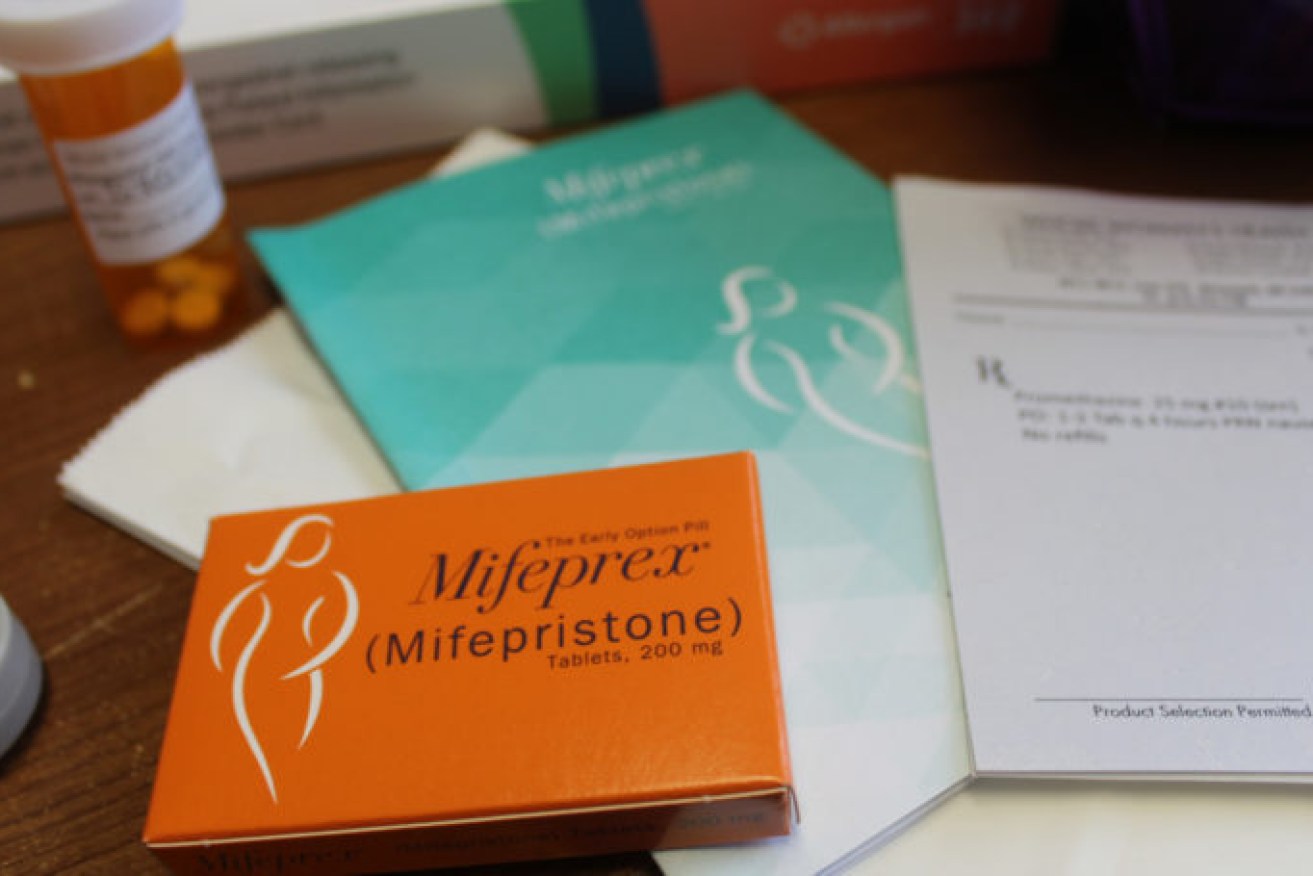Privacy warning over SA Govt demand for abortion data
Proposed new abortion rules requiring doctors to hand over personal and medical information about their patients to the government may breach patient privacy and deter some from seeking help, legal groups have warned.

Mifepristone is a drug used for medical abortions in Australia. Photo: Robin Marty via Flickr
Under regulations drafted by the government, hospital CEOs or doctors would be obliged to report a host of private information to the health minister after performing medical abortions.
Data requested under the draft regulations includes:
- The patient’s name, date of birth and address
- The date of the abortion
- The hospital or clinic’s patient medical record number
- The date of the patient’s last menstrual period or estimated date of conception based on an ultrasound
- The date of the patient’s admission and discharge
- The profession and speciality of the doctor who performed the abortion
- The method of abortion
- Whether the abortion was successful if it was performed exclusively by administering a drug
- The gestation of the foetus when it was aborted
- The foetus’ gender
- Whether a genetic or congenial anomaly test was performed and the outcomes of any test
- Whether there were any complications during the abortion
- Whether an autopsy was performed on the foetus
- Whether information about counselling was provided to the patient
- Whether the patient was admitted for treatment in connection with the abortion and the clinical outcomes associated with that admission
The draft regulations state the health minister could request “any other information” at his or her determination, with doctors given until 20 days of the end of the month to hand over information about each abortion performed.
Regulations are non-legislated rules that accompany legislation and can typically be changed by a minister at the stroke of a pen.
The regulations proposed by the government would be used to enforce the Termination of Pregnancy Act – a historic bill that passed parliament last year to decriminalise abortion in South Australia.
The Act states the health minister must publish an annual report each year outlining how many abortions were performed, the ages of the pregnant people, the gestational ages of the foetuses and “other information (including data and statistics) of a kind prescribed by regulation or determined by the Minister”.
Women’s Legal Services SA CEO Zita Ngor said the proposed regulations went “significantly beyond” was set out in the Act and could create additional barriers for women wanting to access abortions.
“To put it crudely, our opinion when we read the draft regulations was, why don’t you just ask for the woman’s complete medical file?,” she told InDaily.
“They’re essentially asking for everything, every little detail about the woman, even information that’s not directly relevant to the issue of the termination of pregnancy.
“It’s information that really identifies the individual, rather than what was set out in the Act, which talks about having information about the gestation period, or number of abortions carried out.”
Ngor said the draft regulations could exacerbate women’s trauma when seeking an abortion, making them less likely to go through with the procedure.
“For any woman, the position to perform a termination of pregnancy is not taken lightly and that there may be a whole range of factors that come into play when a woman makes that decision,” she said.
“Requiring that level of detail… adds to the trauma that a woman is undergoing at such a difficult period in her life.”
The SA Law Society has also expressed “great concern” with the draft regulations and questioned the government’s rationale.
In an email to Labor MLC Irene Pnevmatikos and published on the society’s website, past president Rebecca Sandford wrote the draft regulations sparked privacy concerns.
“The Society is concerned at the substantial amount of information presently required by… the draft regulations… which includes a range of private and potentially distressing details about the patient and the nature of their abortion, and without apparent justification given the changed legal context in which terminations can now occur,” she wrote.
“The basis for the collection and reporting of that range and detail of data, particularly in the circumstances of what is now a lawful and regulated health procedure, is not identified or apparent.
“The purpose/s for which that information may then be used is also not identified or limited, giving rise to associated privacy concerns.”
But a government spokesperson told InDaily that collecting patient information was already mandated for a number of health conditions and procedures, including cancer and perinatal services.
The spokesperson said the data was used to help health professionals plan for service delivery and to ensure patients received adequate care.
“This regulation brings Termination of Pregnancy data collection in line with other health conditions and procedures across the system,” they said.
“The regulations were subject to extensive consultation with stakeholders, including leading abortion care physicians, clinicians, epidemiologists and legal experts.
“The information to be collected was deemed necessary to facilitate robust evaluation, research, data analysis and service planning for abortion care.”
The spokesperson said where an individual experiences post-abortion complications, collecting data at an early stage helped ensure the provision of appropriate treatment to the patient.
They said that given the “extremely sensitive and private nature” of the information, it would be collected on a confidential basis and protected by Wellbeing SA, on behalf of the health minister.
“Significant penalties are in place under the Termination of Pregnancy Act for anyone who breaches this confidentiality, including penalties of up to $50,000 for a person, $120,000 for a body corporate and up to $10,000 for any other form of unauthorised disclosure,” they said.
The regulations are yet to be finalised by the government.




